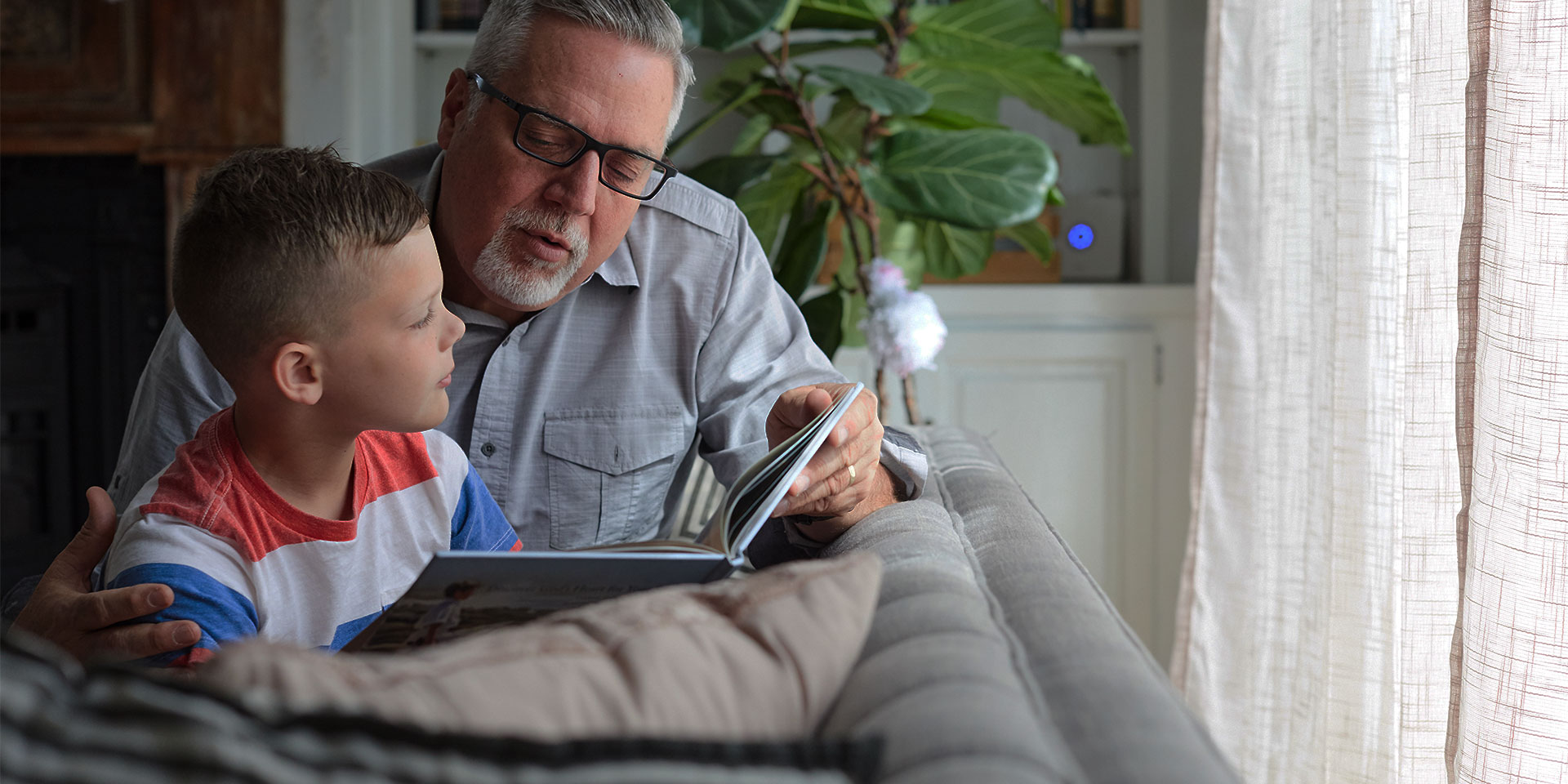“When grandparents enter the door, discipline flies out the window,” poet Ogden Nash once said, encapsulating one of the most common sources of intergenerational conflict—the role grandparents play in the upbringing of their grandchildren.
Nearly half of parents have admitted to having disputes over raising children with one or more grandparents, according to a 2020 survey conducted by researchers at Michigan Medicine. One in seven parents said these conflicts were serious enough to warrant limiting their child’s time with their grandparents. Disciplining children (57%), food choices (44%), and screen time (36%) were the most common bones of contention, with other thorny subjects including manners, child safety and health, bedtime, biased treatment of grandchildren, and posting photos or information on social media.
When disagreements became apparent, 43% of parents asked grandparents to change their behaviour, and of those, 47% say grandparents did make a change. On the other hand, 36% of parents reported that grandparents agreed to their requests but did not follow through, and 17% said grandparents refused to change.
Parents feel that their authority is undermined when grandparents set stricter or more lenient boundaries for grandchildren than parental ones, and grandparents often struggle to understand that medical advice and parenting guidelines have changed significantly over time, researcher Sarah Clark says. The situation becomes even more complicated when grandparents are involved in childcare (because parents work and either do not want or cannot afford a nanny), but discussing boundaries from the outset could prevent major conflicts later on.
It’s also important for grandparents to try to apply the parents’ rules as consistently as possible, to support their already challenging work, and to not jeopardise the relationship with their grandchildren, which has multiple benefits for all parties involved.
Good news for grandparents and grandchildren
Harmonious intergenerational relationships have a very positive impact on the well-being of grandparents (and beyond), a truth highlighted by a series of studies.
Better verbal fluency, a higher level of satisfaction, stronger positive emotions, and a reduction in feelings of loneliness are some of the gains for grandparents who maintain a close relationship with their grandchildren. Additionally, elderly individuals who occasionally engage in caregiving for grandchildren had a 37% lower risk of mortality than those who were not involved in raising grandchildren or did not have grandchildren at all.
The emotional closeness between adult grandchildren and grandparents serves as a protective factor against depression for both groups, according to researchers at Boston University. Other studies show that grandparents’ involvement in grandchildren’s lives during childhood is associated with their emotional development, cognitive functioning, and social adaptation in early adulthood. Furthermore, the lessons learned from grandparents in childhood, especially those related to spirituality and moral development, persist into adulthood.
“Grandparent love and knowledge is essential to a child’s self-esteem and self-identity. They need to find their place and feel part of a family that has a history,” psychotherapist Roslyn Hunter says.
There are, therefore, very good reasons for grandparents to spend more time with their grandchildren, and for grandparents and parents to find common ground on which to meet, including sensitive subjects such as disciplining children.
When (and why) should grandparents intervene in disciplining grandchildren?
Even when they try not to get involved in disciplining grandchildren, the fact that many grandparents are involved in caring for young children makes everything more challenging. Even so, advice on discipline should not be offered unless requested, says Rog Parson, founder of the organisation Care for the Family, admitting that this can be frustrating, “because just about the time we get the hang of parenting we find we are redundant.”
However, it’s the parent’s job to be the parent: they “delegate authority to the grandparent, not the other way around,” says paediatrics professor J. Lane Tanner, explaining that, to avoid stress and confusion, a child needs to know who’s in charge.
When should grandparents get involved in the discipline process (which is not synonymous with punishment, but with enforcing the behaviour rules established in the family)? “When parents say they can, when parents are not present, when a child’s behaviour directly affects them, when a child’s safety is at stake or when a child breaks their house rules,” Tanner says.
Communication regarding expressed and unexpressed expectations, negotiable rules, or non-negotiable rules is essential. It’s also important for each party to feel respected, says Christian author Bev Phillips, who offers some advice for maintaining harmony between parents and grandparents. Parents need to feel supported in their challenging mission. There’s no doubt that the full responsibility for raising and educating children lies with them. It’s not unnatural for parents to choose to discipline their children differently than they were raised, and the more grandparents agree with more of the choices made by their now adult children, the closer they will be to them and, consequently, to their grandchildren. Even if, in the absence of parents, grandparents may consider it normal to take the reins, it’s wise for them to seek suggestions regarding handling certain situations or implementing rules, Phillips says.
Grandparents need to find out if their grandchildren’s parents expect them to be involved in the discipline process and, if not, how to proceed when the children refuse to follow the rules, says Josh Mulvihill, author of several books on family. A cooperative attitude, which communicates to the parent that their choices regarding screen time or permissible desserts for the child are respected, creates an atmosphere of trust and respect. The parent notices whether the issues that matter to them also matter to the grandparents.
At some point, grandparents need to discuss with the parents how to handle their grandchildren’s behavioural slip-ups, and the earlier they do it, the lower the risk of tense situations arising, psychologist Nancy Buck says. Rule enforcement varies depending on the role assumed by the grandparents and sometimes on the “territory” where the grandchildren are. A grandmother herself, Buck says her grandchildren follow her rules when they are at her house. “In my house we do things my way,” explains the psychologist, emphasising that there are still rules set by the parents that she never breaks, such as one of the grandchildren having a vegetarian diet. On the other hand, when grandchildren exhibit undesirable behaviour of which the parent is already aware, grandparents should not insist on it, leaving the parent the freedom to set things right.
In an imperfect world, misunderstandings and frustrations are often inevitable, even if all parties have good intentions. Tanya Copenhaver is one of the mothers who has learned that, although she cannot come to an agreement with her mother on all matters—at least not when it comes to her 4-year-old daughter—the benefits of involvement in her granddaughter’s life outweigh the inconveniences.
For the sake of those we love
If it’s not easy for a parent to be a parent, neither do grandparents take on their role without difficulty, says psychiatrist Thomas Verny, noting that adapting to a new social role (usually in late middle age) involves practising behaviours that interfere with old habits. Perhaps they were accustomed to having a spotless house every day, with everything neatly in its place, or to undisturbed relaxation on the sofa in front of the TV after dinner, but they will have to change their habits if they choose to get involved in their grandchildren’s lives.
Flexibility should be the key word in this important network of relationships. Grandparents need to understand that, just as they made mistakes as young parents, their children will make mistakes in raising their own children. In turn, parents need to accept that indulgence and relaxation of certain boundaries are part of the job description of being a grandparent and that the memories created now will be very precious for their children. “It’s good to let grandparents be grandparents,” says researcher Sarah Clark, advising parents to take a small step back in less important matters.
Even when the relationship between grandparents and their children (or their partners) are more challenging, what each party needs to remember is to prioritise the needs of the child, psychologist Joshua Hunter says. “The relationship between a grandparent and grandchild is one of shared vulnerability and a kind of innocence,” says Hunter, advocating for protecting this infinitely precious resource represented by “a loving and involved grandparent.”
Carmen Lăiu is an editor of Signs of the Times Romania and ST Network.



















